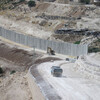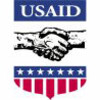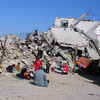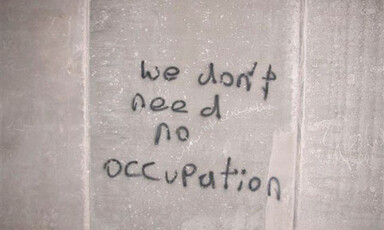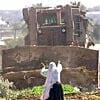
Open letter from Palestinian Civil Society in Support of AUT Academic Boycott
16 May 2005
On 16 May 2005, a large number of Palestinian non-governmental organizations wrote to express their full support of the decision made by AUT delegates on the 22nd of April to launch immediate boycotts of Haifa and Bar-Ilan Universities. According to the signatories, the motion “marks an historic moment in the global movement to isolate Apartheid Israel as a means of forging effective solidarity with the Palestinian struggle for freedom, self-determination and sovereignty.” Read more about Open letter from Palestinian Civil Society in Support of AUT Academic Boycott
